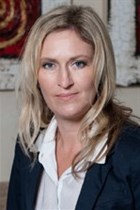The increased availability of shared, open knowledge is a trend in e-learning that could make a great impact on the way technology in education is approached in South Africa in 2013 and beyond.
The use of video and "lecture capture" and the possibility of completely lecture-free university degrees have the potential to make tertiary education more affordable and accessible than ever before.
Lecture capture is a hot topic in tertiary education in the US and the UK right now. It simply means shooting video of lectures and broadcasting them free over the internet. Harvard University, now one of the edX universities, which include Berkeley, the Massachusetts Institute of Technology (MIT) and the University of Toronto, pioneered lecture capture and has been offering free broadcasts of popular lectures online for as long as five years now.
EdX is a not-for-profit enterprise founded by Harvard and MIT that offers a number of free online courses while using the platform to research how students learn and how technology can transform learning on campuses around the world. The only requirement for taking one of the classes offered by an edX university is having a computer and an internet connection. More than 150,000 people from 160 countries registered for MIT's first edX course, Circuits and Electronics.
Students who complete edX courses receive "certificates of mastery" but don't qualify with degrees or diplomas. This doesn't mean that you can't get a valid university degree online, however. The University of Wisconsin offers a legitimate degree that requires no classroom time unless the programme has clinical or practical components that must be completed.
Universities have offered free "massive open online courses", or MOOCs, for some time, but the University of Wisconsin is the first to organise them into a bachelor's degree.
Introducing similar initiatives into the South African learning landscape could open up tertiary education to a far wider audience. Open knowledge is definitely a space to watch in the digital learning realm.
















































